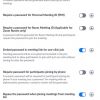-
 +17 +1
+17 +1Why You Should Hate Your Job
Do you like your job? Maybe you do, but I think you should reevaluate. At the very least, I think you should be uncomfortable with the fact that you live in a system that compels you to have a job, particularly if that job is neither necessary for your own well-being nor the well-being of others.
-
 +24 +1
+24 +1We Need Five Days’ Pay for Four Days’ Work
Working time reduction has always been used as a way of distributing available work and reducing unemployment. In our era of crisis, we need to fight for a four-day week.
-
 +23 +1
+23 +1Employees working from home should pay 'privilege' tax' to support workers who cannot, Deutsche Bank research note says
Employees who choose to work remotely should pay a tax to help those workers on low incomes who cannot, said a research note from Deutsche Bank. According to the research report titled "What We Must Do to Rebuild," employees who work from home receive immediate financial benefits, including reduced costs for travel, food and clothing.
-
 +10 +1
+10 +1Job policies that offer generous unemployment benefits create more happiness – for everyone
Governments use a variety of labor market policies to support workers who lose their jobs – each with a different impact on a country's well-being.
-
 +9 +1
+9 +1Inviting employees back to the office – if you dare
Just because your state or city allows you to bring staff back to the office doesn’t mean that the facilities are ready for them to work safely. Here’s what you need to consider before employees return – assuming you can convince them to do so. Don’t count on that.
-
 +24 +1
+24 +1How to “manage up” from home
Telecommuting requires new interpersonal skills, especially if you’re trying to stay on the boss’s radar. So what’s the best approach?
-
 +4 +1
+4 +1The time is right to reclaim the utopian ideas of Keynes – John Quiggin
Ifirst became an economist in the early 1970s, at a time when revolutionary change still seemed like an imminent possibility and when utopian ideas were everywhere, exemplified by the Situationist slogan of 1968: ‘Be realistic. Demand the impossible.’ Preferring to think in terms of the possible I was much influenced by an essay called ‘Economic Possibilities for our Grandchildren,’ written in 1930 by John Maynard Keynes, the great economist whose ideas still dominated economic policymaking at the time.
-
 +4 +1
+4 +1A Pandemic Won’t Kill the Open Office, but Slack Could
Taking down walls made modern offices cheaper, infuriating, and perfect vectors for viral spread. But as a recession looms, they still may not be going anywhere.
-
 +11 +1
+11 +1Leaders Are Crying on the Job. Maybe That’s a Good Thing.
Politicians. Chief executives. Newscasters. In the pandemic, the old rules of who is allowed to cry in public are changing.
-
 +4 +1
+4 +1Death of the office
As the pandemic leaves offices around the world empty, Catherine Nixey asks what was the point of them anyway?
-
 +20 +1
+20 +1Google expects its staff to work from home until 2021 and it's not alone
So, you expect life and work to be back to normal soon? Google and many other companies don't. Many of you now working from home may never go back to the office.
-
 +14 +1
+14 +1LinkedIn CEO Gives The Best Work From Home Advice
The Chief Executive Officer of LinkedIn, Jeff Weiner has shared his advice about utilizing the free time for work from home effectively. He always advocates for maximum productivity and has suggested a new approach related to buffer time.
-
 +22 +1
+22 +1Making Remote Work a Success in the times of COVID-19
The news these days is overwhelmingly loaded with something or the other about COVID-19 or the coronavirus. Aside from the continual updates on the spread of the disease and the mortalities, there is news about cities being shut down, panic buying of essentials and not-so-essentials, and overloaded treatment and quarantine centers, among others. Employers are preparing themselves for possible disruptions – such as labor shortages, transportation issues, reduced working hours and low consumer traffic – that could have long-term effects on business.
-
 +15 +1
+15 +1The dark shadow in the injunction to ‘do what you love’ – Kira Lussier
Why do we work? Many of us might give a simple transactional answer to the question: we work in order to make money. For the American psychologist Abraham Maslow (1908-70), and the management thinkers inspired by his theory of motivation, people’s motives for working could not be reduced to a paycheck. Instead, Maslow and his followers argued in management texts and training seminars that people work to fulfil higher psychological needs. People work to become self-actualised and to find meaning – provided that meaning can be found in the mundane realities of working life.
-
 +20 +1
+20 +1Zoom safely: How to password-protect your meetings
It's very easy to set up a Zoom video conference, but, by default, it's also easy for hostile strangers to break into your meeting. Here's how to stop them.
-
 +17 +1
+17 +1Pet the cat, own the bathrobe: Linus Torvalds on working from home
Linus Torvalds created Linux and Git from home. Here's how.
-
 +27 +1
+27 +1How to avoid the time-suck of social networks while working at home
Stuck at home thanks to the coronavirus and can't keep away from Facebook, Twitter, Slack, and the like? Here's how to run them so they don't ruin your life.
-
 +22 +1
+22 +1How to survive and thrive while working from home
Quarantine means more people are working from home. If that’s new to you, just follow these tips, and you should do OK. Heck, you may even find that you like it.
-
 +7 +1
+7 +1Coronavirus really is that bad and you should work from home
Is coronavirus really that much worse than the flu? Yes, it is, and if the past is any guide, staying at home will help keep it from spreading.
-
 0 +1
0 +1Rise of Monochromatic Themes in Office Spaces
One of 2020's hottest office design trends, monochromatic design creates a look that's elegant, clean, and cohesive without removing comfort or approachability.
Submit a link
Start a discussion




















